Brian McGuigan (of Seattle) talks Tao, Junot Diaz, Guns, Poetry Readings, etc……
*****
*****
Rauan: so what do you think of Tao Lin’s prose?
Brian McGuigan: Tao Lin is the literary equivalent of Nascar without the excitement of car crashes. I know people out there love his work (as there are many out there, like me, who don’t), but reading his prose is like watching cars drive in circles. His sentences lack much pulse. The verbs don’t twerk–they don’t even do the Hokie Pokie. They just lay there flat, motionless, like sex you don’t really want to have but you’re doing it because you know your partner wants it and you just want to go to bed. I feel the same about Lin’s dialogue, which is often cited as his skill, but it reads like a bad Miranda July movie, overcooked and unsalted. There’s just no spice. The sum of it all reminds me of writing I read in college workshops over a decade ago. If I could ever make it through one of his novels (Twenty pages into “Richard Yates” I chucked the book on the floor of a beloved Seattle indie bookstore and walked out.), I’d have red-penned the shit out of it. I’ve never understood the hype around Tao Lin. His writing just isn’t for me.
*****
*****
Okay, so that was the first part of my latest Seattle Author Spotlight (# 8, featuring Brian McGuigan).
*****
Brian was, until quite recently, the program director at Hugo House. Brian’s still involved with Hugo House, curating among other events his regular and extremely popular Cheap Wine/Beer & Poetry/Prose nights, but now, after the success of his essay My fantasies of mass murder at Salon, Brian spends most of his working hours on a memoir regarding his experiences with violence, guns, etc. Brian McGuigan is street wise, a damned hard worker and has an excellent and elegant sense of humor. Coming out of a tough Irish family Brian certainly has toughness also and, though I don’t think he’s been to Ireland, Brian speaks as though he’s kissed the Blarney Stone several times! It was great chatting with him in preparation for this Spotlight.
And, to follow then is the rest of the interview portion of this Spotlight, followed by a brief bio and then links to previous Spotlights.
Enjoy!
*****
*****
Rauan: people (writers and poets included) are wary of attending poetry readings because, irrespective of the quality of the work, poetry readings can be so fucking boring. what can be done here ?
Brian: Over the last decade, I’ve coordinated several hundred readings at least, featuring biggies like Sherman Alexie and Sam Lipsyte to beloved Seattle writers like Nicole Hardy and Karen Finneyfrock. What makes a good reading and what makes for good readers is something I could write a regular column on for HTML Giant. (Hook me up, Rauan!) I’ll boil my comments down to two pieces of advice, one for people who run events and one for writers.
First, if you coordinate readings, always remember you are in the entertainment business. People read books to laugh, to cry, to cringe, to learn, to be inspired, to escape whatever bullshit makes their lives suck. People come to readings for the same but only they want to share that experience with others. The best readings are comfortable and don’t take themselves too seriously. The lights are dim, and often there’s booze. When putting on a good reading, select your readers with entertainment value in mind. Sometimes the best writers are terrible on stage. They don’t make eye contact. They read without any affect. They mumble or they read way over the time limit or they drink too much and break down crying on stage. (I’ve seen it!) So choose readers carefully and with your audience in mind.
Which brings me to writers. My number one piece of advice is to fucking practice. Read your work aloud often. Do it in front of the mirror, so you can see your odd facial tics and how many times you look up at the audience. Make eye contact. Project. Read slowly and with conviction. Breathe. Don’t fear the silence, it means they’re listening. If you make the audience believe you care about your work and how it’s presented, they will care, too.
*****
*****
RK: When I asked you what writers had really blown you away, really shaken you up, the first name you mentioned was Junot Diaz which made me swallow my gum and spit out my bitter coffee because, well, when I read his “Wondrous Life” I pretty much wanted to kill that self-satisfied and show-offy voice of the work that was like nails on the chalkboard of my mind. But, seriously, can you please tell us a bit more about what you enjoy, admire and have learned from Diaz?
BM: Diaz is one of my favorite authors and a touchstone writing-wise. He’s from the Dominican, but he grew up in Jersey, just a kid from around the way. His family was working-class, and he’s had a complex relationship with his father. Our lives are alike in ways, and to see him achieve such success in a world neither of us are from is inspirational.
Diaz’s first sentences are fucking killer. “I lived without a father for the first nine years of my life.” (from “Aguantando”) “Earlier today me and Cut drove down to South River and bought some more smoke.” (from “Aurora”) “The first time we try to deliver the Gold Crown the lights are on in the house but no one lets us in.” (“Edison, New Jersey”) Immediately, you’re placed in a way of life and presented with a sense of tension, an abandoned child, a drug deal, a delivery gone awry. The stories tumble forward from there as Diaz creates worlds you don’t want to be in but can’t leave. His work captures the complexities of what it is to be human, the contradictions, the decisions we know we’ll regret but still make. And I love Diaz’s voice. It’s authentic and has balls and reminds me of home.
*****
*****
RK: Congrats on the success of yr essay, “My fantasies of mass murder” which has received enough attention (that of an agent even) for you to focus exclusively on writing a memoir about yr experiences with violence. Part of this, for you, has been to read and learn from lots of successful memoirs. Which of these, then, have you found particularly effective and powerful? (what, as far as structure, etc, have you stolen or borrowed) ??
BM: The mother of all modern memoirs is Cheryl Strayed’s “Wild,” and it’s one I’ve studied the structure of heavily. Strayed’s remarkable trek along the Pacific Crest Trail functions as an ideal container for her to tell the story of her mother’s death and the grief she was left with. She’s a master of vulnerability, and “Wild” is one of those books that seems to make most anyone cry. That’s what I’m looking for in a good memoir.
Alex Lemon’s “Happy” is another goodie. Lemon’s story of his brain surgery is wrought with the herky-jerkiness you’d expect of a book written by someone suffering from debilitating seizures. His language is elegiac, and his verbs twerk, shaking what their mama gave them all over the page. “Happy” showed me my sentences could have some swagger.
Most recently, I was wowed by Justin St. Germain’s “Son of a Gun,” the first book I’ve read that feels close to the manuscript I’m working on. St. Germain crafts a spare, intense memoir about his mother, who was murdered by his step-father, that I couldn’t put down. For a debut memoirist, St. Germain has a real command of dramatic tension. My copy is stuffed with index cards where I’ve jotted down notes and quotes. Index cards will be in my acknowledgements if I ever I finish this book.
*****
RK: to give our readers a taste of your writing can you please provide us a brief(ish) sample?
BM: Here’s a paragraph from the manuscript I’ve been working on about fatherhood and my personal history with guns and violence. The paragraph below is a small section from a scene where I’ve just found out my wife is pregnant and I’m walking home wondering if I’m ready to be a father, or if I should do what my father did–leave. It’s still a first draft, but I don’t hate this part too much:
I walked to the corner of the block, the sun stinging my neck like a towel whip, and spied the bus stop across the street where any of the lines, their numbers running down the sign, could take me Downtown to the train which would take me out to the airport. One of the buses pulled up to the curb, and I saw a woman bumble off with a slack-jawed baby boy strapped to her chest, the most adorable bomb. There was something familiar about her, black lines of exhaustion crop-circled her eyes, and although she was about my age, grey strummed her once brown hair. At the stop light, she fumbled in her pocket, and flopped a small cap from her tote, a broad-brimmed fisherman’s hat spotted with something I couldn’t make out, cars or fish of all colors. She slid the hat on her boy’s morning-gloried head, hiding him from a judgmental sun staring down from a sky so blue you’d understand why it’s a paint color’s namesake. The woman reminded me of my own mother and our adventures on the bus, the word she used to glamorize all the times she begrudgingly lugged me to jobs, doctors appointments, and errands because she couldn’t find a babysitter. “Pack your binoculars,” she said in the same tiresome tone that would befall this woman in a few years, worn by the relentlessness of single-parenthood.
*****
RK: Your life has been eventful, and eventful, specifically, with respect to violent and dangerous incidents. Can you tell us a bit about some of the violent things that have happened to you and led you, also, to being a gun owner (which in the writing community is kind of a controversial thing)?
BM: Throughout my life, I have been the unfortunate victim of several crimes, a few involving guns. At 8, my mother and I walked in on an armed robbery of a comic book shop, and had a gun shoved in our faces. Shortly thereafter, our apartment was burgled, and everything of value we owned, which wasn’t much, was stolen. On a walk home from a high school dance, I was held up by some kid for six bucks and some Newports. A few years ago, I had my scariest encounter. I was walking home from work when a car ran a red light and almost hit me at the crosswalk. I gave the car the finger, and three blocks later, it pulled up behind me. Two guys hopped out, threatened me, and then chased me through rush hour traffic. There are some other incidents, too, and they’ve all had an impact on my sense of safety, among other things.
As far as gun ownership is concerned, it isn’t something people in the writing community or in general here in Seattle regard positively. The few arguments I’ve had usually end when I ask people if they ever had a gun in their faces. In “Son of a Gun,” St. Germain defends his ownership when he writes, “Nobody ever wins the argument. They don’t believe in the man at the door. I do. I’ve met him.” I’ve met him, too, and he’s fucking scary.
*****
RK: The advent of your son, you said, was a huge part of your wanting to think and write about violence and the role it’s played in shaping your life. And, you’ve been particularly sensitive to your role of father because of the fact that you never had a father. Your son, it seems, has made you, generally, a more responsible and mature person. A more engaged and thoughtful writer. Your thoughts?
BM: Parents always say everything changes when you have a kid. Before I had one, I thought that was bullshit. It’s not. The moment I looked into my little boy’s eyes I was hooked on a drug stronger than anything I’d ever done before. He’s now almost two, and his immeasurable happiness is infectious. Now that I’ve left my position as program director of Hugo House, we spend a lot of time together. We go to the park and slide. We sit in a small tent and stack blocks. We run around the house screaming gibberish. I’ve found a joy in play that has had an effect on my writing. When I approach the page, there’s an ease I didn’t have before. The work is hard and often I suffer from bouts of self-hatred, but still I’m having fun. I’m just playing the way my kid and I do.
*****
RK: To give our readers a bit more of a taste of your writing can you give us a second brief(ish) sampling?
BM: Here’s a little more of what I’ve been working on. This section is a sort of “etymology” of my father, a man I’ve never spoken to or met. It’s his origin story as I know it through what I’ve gathered over the years.
I had only ever known my father as an absence. The box on my birth certificate where his name should have been was left blank. Little was ever said about him except for the random moments throughout my childhood when my mother insisted I reminded her of him. Churning a comb through my thick hair before school pictures, she tugged at the tip of my widow’s peak and said, “Just like your father’s.” When I danced around the house to her Motown 45s, shimmying across the linoleum floor in threadbare socks, she remembered how my father liked to dance. “It was the Puerto Rican in him,” she said, with a snap of her fingers and a shake of her waist. When I complained about the gap in my front teeth, she pulled the caps out of her mouth and told me to be thankful I had my father’s chompers. “At least they’re strong,” she said, tapping a fingernail against my enamel.Over the years, bit by bit, I learned more about my father than how much I looked like him and was able to piece together the stories my mother told me after she had too much wine, like connecting the edges of a puzzle without using the picture on the box’s cover as a guide. His name was Joseph Ramos, and he dealt acid in Queens where he and my mother both lived. She met him through a friend, someone she knew from the neighborhood; Kathy, Linda, or Gloria, women who’d always looked at me with worry, I don’t remember which one. My father was older and shorter than my mother, and his hair was almost as long as hers, but neither quelled his confidence. He was a big baseball fan and had a good sense of humor. “Like you,” my mother said.
*****
*****
RK: You also have been working on a one-man show entitled “Fat Fuck” which may well provide the basis for a 2nd memoir. The show, “Fat Fuck,” comes out of your experience of losing, through diet and exercise alone, 140 lbs. What tips and warnings and encouragements could you give to other people faced with such daunting weight challenges?
BM: Meet yourself where you are. When I first started losing the weight, I was 340 lbs. I didn’t exercise. Most of my meals were fast food. I drank Sunny-D and thought I was getting my vitamins. I knew I couldn’t just start running and eating Wheaties and expect to change my life. So, I took weightlifting and nutrition classes. I worked out with friends who were in good shape and could show me how to exercise without hurting myself.
Also, no diets. I spent so many years dieting, but always gained the weight back because it wasn’t how I normally ate. Now I eat well. Whatever I want, minus the things I’ve weaned myself from, like fast food, soda, and Pepperidge Farm cookies. I try to be sensible, which I think is the basis of healthy eating. That and drink water.
*****
Brief Bio:
Brian McGuigan is a poet, writer, performer, and arts get-shit-done-er. He is the co-founder of the popular reading series, Cheap Wine & Poetry and Cheap Beer & Prose, and an events curator at Hugo House where he has worked in a variety of roles since 2005. Brian was shortlisted for The Stranger’s Genius Award in Literature and was a fellow in the Jack Straw Writers Program. Spankstra Press published his chapbook of poetry, “More Than I Left Behind,” in 2006. His writing has appeared in Salon, The Stranger, The Weeklings, and others. Brian has also written and performed a series of multimedia monologues entitled “Fat Fuck” about his lifelong struggles with weight and his ultimate loss of 140 lbs. He’s from Queens, NY and now lives in the Othello neighborhood of Seattle.
See more at Brian’s website. Or follow him here on Twitter.
***
Previous Spotlights
Tags: Brian McGuigan, Seattle Author Spotlight

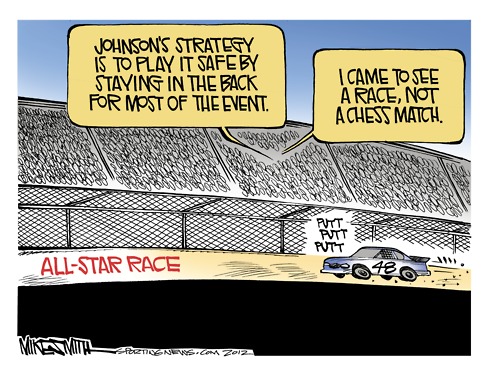
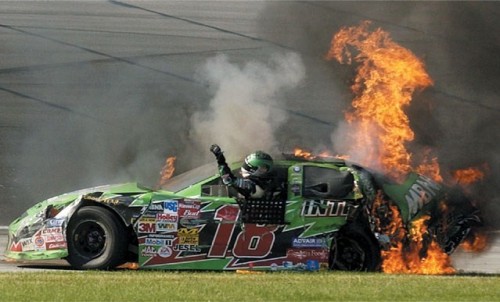
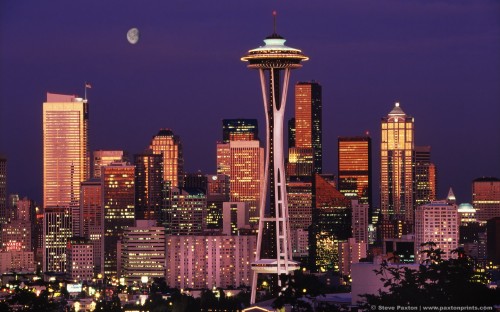
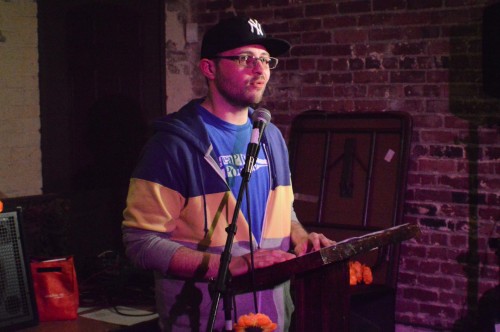
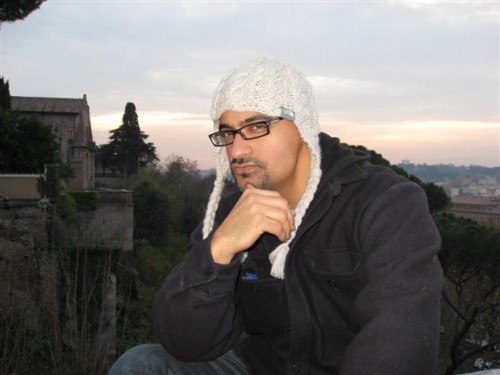
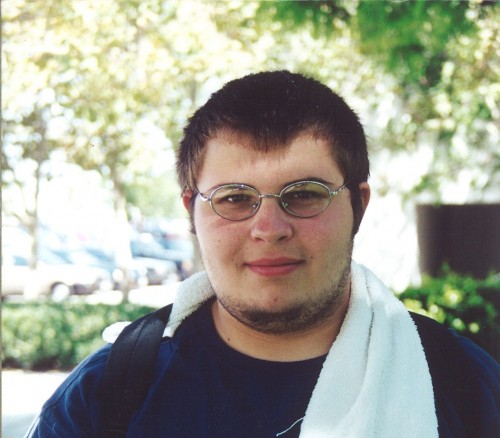
[…] A few weeks ago, I met poet Rauan Klassnik for an interview at Elliott Bay Books. We talked about writing and writers, fatherhood, guns, bad poetry readings, etc. Two hours later, we both looked as if we’d stuck our fingers in the same socket but in a good way. Rauan followed up by email with more questions, which turned into this interview on HTMLGiant, part of their Seattle Author Spotlight Series. […]
Yay!
tinyurl.com/l3cselt